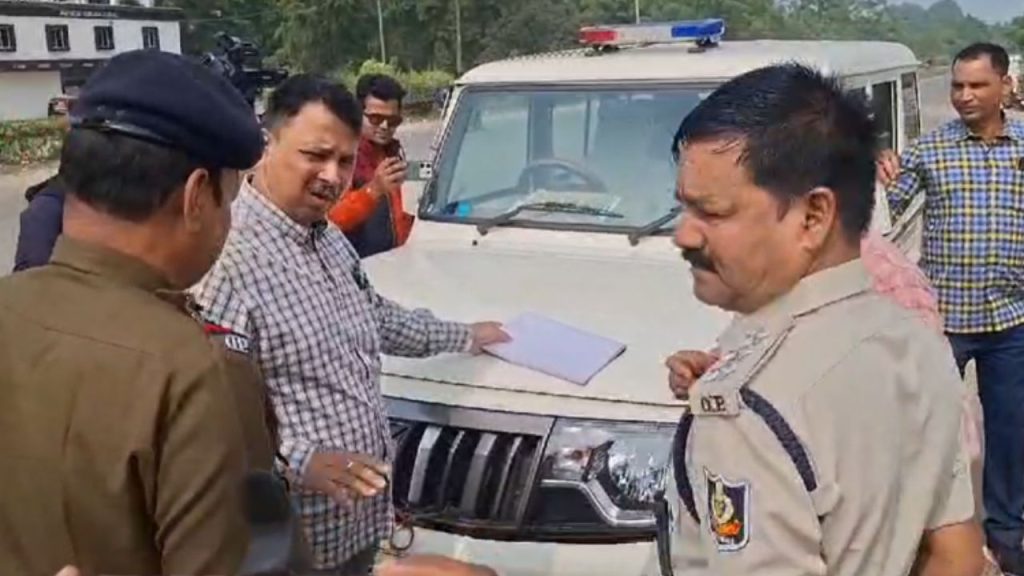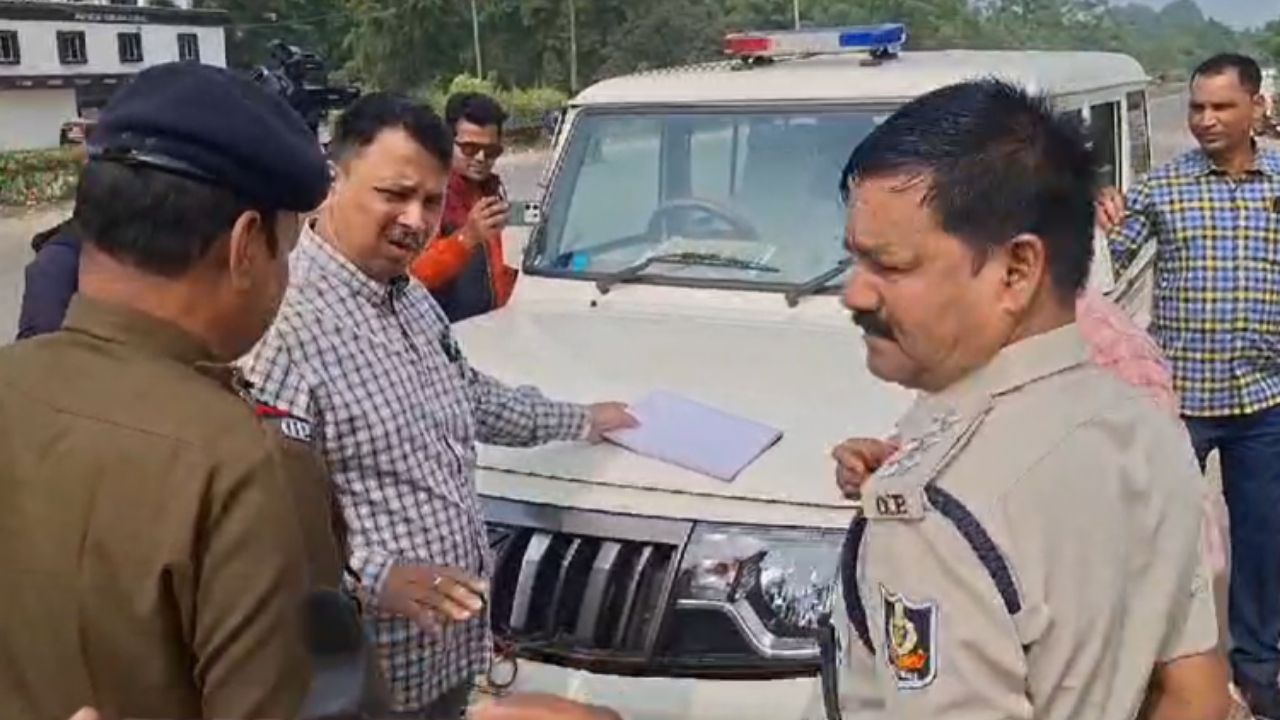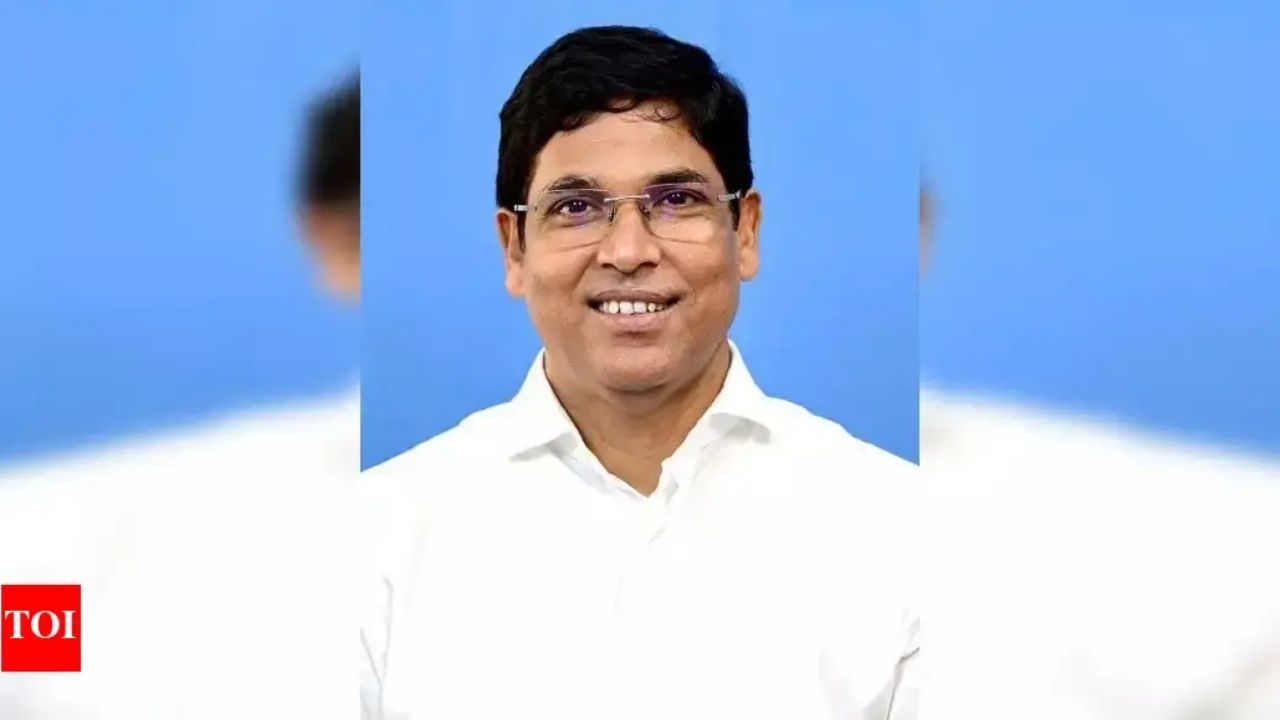On July 12, 2025, a 20-year-old student from Fakir Mohan Autonomous College in Balasore, Odisha, set herself on fire in a heartbreaking act of desperation. The incident, which led to her death two days later, has sent shockwaves through the country and raised important questions about systemic failures, accountability, and the handling of sexual harassment complaints.
The case quickly turned into a criminal investigation, with Odisha’s Crime Branch taking charge. What started as a tragedy has now become a battleground for justice, sparking widespread protests, political outrage, and calls for reform. The student, who suffered 95% burns from the self-immolation attempt, had allegedly been subjected to sexual harassment by Assistant Professor Samir Kumar Sahu. When her complaints were reportedly ignored by both college authorities and local police, her tragic act of self-immolation became a symbol of the failings in the handling of harassment complaints.

In this article, we explore the unfolding investigation, the tragic death of the student, and the wider implications for handling harassment complaints in educational institutions. We’ll also discuss the role of authorities and the importance of addressing these systemic issues to ensure that such an event is never repeated.
Odisha Crime Branch Interrogates Person
| Key Fact | Details |
|---|---|
| Incident | A 20-year-old student in Odisha self-immolated after sexual harassment complaints were ignored. |
| Date of Self-Immolations | July 12, 2025 |
| Fatal Outcome | The student died on July 14, 2025, due to 95% burn injuries. |
| Investigation | The Crime Branch is leading the investigation, focusing on the role of the college and police. |
| Eyewitness | Jyotiranjan Biswal, who tried to save her, is being interrogated. |
| Political Fallout | Protests erupted, and calls for a judicial inquiry and systemic reform were made. |
| Support from Authorities | The National Human Rights Commission and the National Commission for Women have intervened. |
| College Involvement | Principal arrested for allegedly pressuring the student to withdraw her harassment complaint. |
| Online Harassment | Investigations are examining if online harassment played a role in the incident. |
The tragic self-immolation of a student in Odisha has shined a spotlight on the critical issues of sexual harassment, institutional failures, and the lack of support systems for victims. While the investigation continues, it’s clear that the case is about more than just the actions of one professor or one college—it’s a reflection of broader societal issues that must be addressed. By examining the systemic failures, ensuring justice, and implementing necessary reforms, we can hope to create a safer and more supportive environment for future students.
Background of the Tragic Event
The Events Leading to the Tragedy
The student’s self-immolation came after months of unresolved complaints against her college professor, Samir Kumar Sahu, who she claimed had sexually harassed her. Despite her complaints to college authorities, which included the college principal, Dillip Kumar Ghose, and local police, nothing was done to protect her or hold the accused professor accountable.
According to sources, after her complaint was allegedly brushed aside by the college administration, the student was forced to confront the painful reality of having no support system in place. Frustrated and hopeless, she made the desperate decision to end her life.
This tragedy didn’t just shock the local community but also ignited a firestorm of debate about how harassment complaints are handled in educational institutions across the country. Many have pointed to the systemic flaws that allowed this incident to happen.
The Role of the Authorities
The involvement of the Odisha Crime Branch is significant because it reflects the gravity of the case. The Crime Branch has expanded the scope of its investigation beyond the initial reports of harassment. They are focusing on several critical aspects: whether the student was provided with the petrol that she used to set herself on fire, if any authorities incited or ignored the situation after she left the principal’s office, and whether online harassment contributed to her tragic decision.
The involvement of an eyewitness, Jyotiranjan Biswal, who tried to prevent the student from setting herself on fire, adds another layer to the case. Biswal, who sustained burn injuries during the attempt to save the student, is under investigation to clarify what led to the horrific act.
Moreover, the Crime Branch is looking into the role played by local police. There have been allegations that the police were aware of the harassment but failed to take any action. This failure has sparked outrage among citizens and human rights organizations, who believe that better intervention could have saved the student’s life.
The Role of College Authorities
In a shocking turn, college principal Dillip Kumar Ghose was arrested on charges of pressuring the student to withdraw her complaint. Reports suggest that after the student complained about the professor’s harassment, Ghose tried to force her to drop the matter, possibly to avoid a scandal or protect the reputation of the college.
The college’s handling of the situation has become a key focus in the investigation. Many experts argue that educational institutions need to have clear, unbiased processes for dealing with complaints of harassment. The failure to protect the student raises critical questions about how colleges handle sensitive issues such as harassment, discrimination, and student well-being.
Systemic Failures and the Need for Reform
The tragedy has brought to light serious flaws in the system. These systemic failures include:
- Inaction by Authorities: When the student made her complaint, both the college administration and local police failed to act promptly. This inaction allowed the situation to escalate, ultimately leading to the student’s tragic death.
- Lack of Support for Victims: Institutions must ensure that students have access to proper emotional and psychological support when dealing with trauma. The fact that the student had no one to turn to after facing harassment highlights the need for a support system within educational institutions.
- Failure to Address Sexual Harassment: The case underscores the importance of addressing sexual harassment in educational environments. Institutions must adopt strict policies, educate staff and students about harassment, and create an environment where victims feel safe coming forward.
Addressing Online Harassment
In the digital age, harassment isn’t limited to physical spaces. Investigators are also examining whether the student faced online harassment. The impact of digital harassment, particularly on social media platforms, is growing, and the case highlights the need for stronger policies to combat this type of abuse.
As part of the ongoing investigation, authorities are delving into whether the student’s online interactions contributed to her decision to take her own life. Cyberbullying has been linked to several tragic suicides, and this case brings to light the importance of tackling online harassment with the same seriousness as offline harassment.
Impact of the Case
The tragic death of the student has sparked nationwide protests, with political leaders calling for justice. Opposition parties have demanded a judicial inquiry into the case, arguing that the current system has failed the student. The case has also brought national attention to the broader issues of harassment in educational institutions, forcing a conversation about reform.
The National Human Rights Commission and the National Commission for Women have both taken cognizance of the incident, calling for an overhaul of policies regarding harassment complaints and the treatment of victims in colleges and universities. These organizations are pushing for better laws and regulations to prevent such tragic incidents in the future.
New Developments Emerge as Crime Branch Investigates Odisha Woman’s Death
Odisha Bandh Brings Bhubaneswar-Cuttack to a Standstill – No Buses, Blocked Roads
Odisha Govt Adds Abetment of Suicide Charges in FM College Student Death Case
FAQs
What was the reason behind the student’s tragic self-immolation?
The student reportedly set herself on fire due to ongoing sexual harassment by a professor at her college, combined with a lack of support from college authorities and local police.
Why was the college principal arrested?
The college principal, Dillip Kumar Ghose, was arrested for allegedly pressuring the student to withdraw her sexual harassment complaint, which may have contributed to the student’s distress.
What role did the Odisha Crime Branch play in the investigation?
The Odisha Crime Branch took over the investigation to ensure a thorough inquiry into the case, focusing on the role of the college and the police, as well as whether anyone helped the student procure petrol for the immolation.
What can schools and colleges do to prevent similar incidents?
Educational institutions need to have robust systems in place to address harassment complaints, offer emotional support to victims, and ensure that complaints are handled fairly and quickly. Additionally, anti-bullying programs, both online and offline, can help foster a safer environment for students.
How are authorities addressing online harassment in this case?
Investigators are looking into whether the student was subject to online harassment, which may have influenced her decision to self-immolate. This highlights the growing importance of addressing cyberbullying in educational settings.





